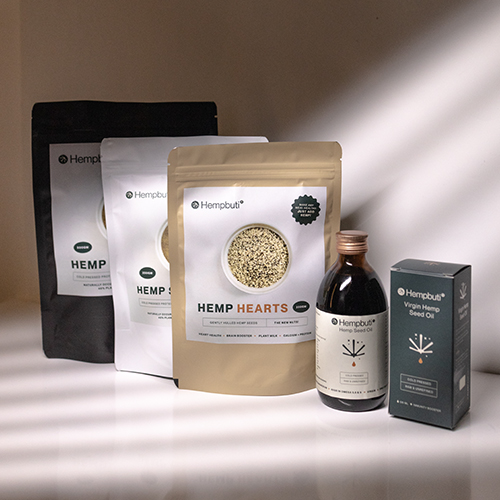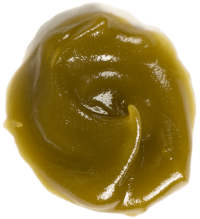

|
Countries worldwide are seeing a rapid increase in the demand for hemp seed as an ingredient in food and cosmetics. This is because hemp is considered to be ‘natural food’ and offers potential health benefits. While countries like China and Turkey consume roasted hemp seeds as a snack, the Baltic countries are known to use hemp butter. There is very little research conducted on the nutritional and health benefits of hemp seeds and oil as compared to other, more traditional options. However limited the data, it is still indicative of the rather unique composition of hemp and the abundant nutrients it stores within itself. |
 |
 |
Rich in fatty acid—the good kind
One of the best nutritional properties hemp has is fatty acid which is often also called healthy fats. Although the amount present depends on growing conditions and the type of hemp, the plant is said to have the highest composition of the nutrient. Hemp oil has two vital fatty acids, namely linoleic acid and alpha linolenic acid. These two types of fatty acids are the origins of omega-3, omega-6, and omega-9. A proper balance is required between omega-3 and omega-6 in all diets for deep and sound sleep. Often, the lack of this balance leads to inflammatory disorders. Hemp provides the perfect distribution and is supposed to reduce the risk of atherosclerosis, sudden cardiac death, and some forms of cancer. It also reduces the symptoms of rheumatoid arthritis, mood improvement in bipolar disorders, and optimized development in infants.
The consumption of omega-9 fatty acids in particular can help improve blood sugar control and support healthy weight management. Hemp has twenty times more omega as compared to salmon. This plant-based choice of consuming omega will directly put you on a more sustainable diet!
When compared, hemp has more fatty acid composition than almond, hazelnut, and canola oil. Scientific research suggests that no other plant-based oil offers nutrition in such large components. Another added advantage is that cold-pressed unrefined hemp seed oil adds flavour to the dishes to such an extent that some people enjoy an occasional tablespoon of the oil purely for its splendid taste. Cold-pressed hemp seed oil also contains significant amounts of Vitamin E as well as a high concentration of phytosterols which helps to reduce the bad cholesterol (LDL cholesterol).
Carbohydrates and proteins
Carbohydrates are present in the hull of the seed in the form of non-digestible dietary fibre instead of starch or sugar. Thus, hemp seeds are rich in macronutrients too.
Hemp protein is said to contain all nine essential amino acids which boost the production of nitric oxide; relaxing blood vessels and increasing the probability of treating heart-related problems.
Minerals and vitamins
Hemp fulfills the daily requirement for nutrient intake where 30 g of hemp seed provides 210 mg of magnesium. Hemp seeds are nutrient-dense and extremely high in magnesium which is often missing from certain daily diets. Magnesium plays a significant role in the metabolism of the body and the synthesis of fatty acids. It is also a good source of vitamin A and vitamin D. The addition of hemp seed, oil, nuts, and flour is not just nutrient rich for your diet but also par excellence in terms of taste.
Hemp is brimming with macronutrients and micronutrients. It can be easily added to any routine diet through hemp derivatives. It adds a mild, nutty flavour to any dish.
CLICK HERE to check out our Hempbuti Food & Dietary Supplement Products |










